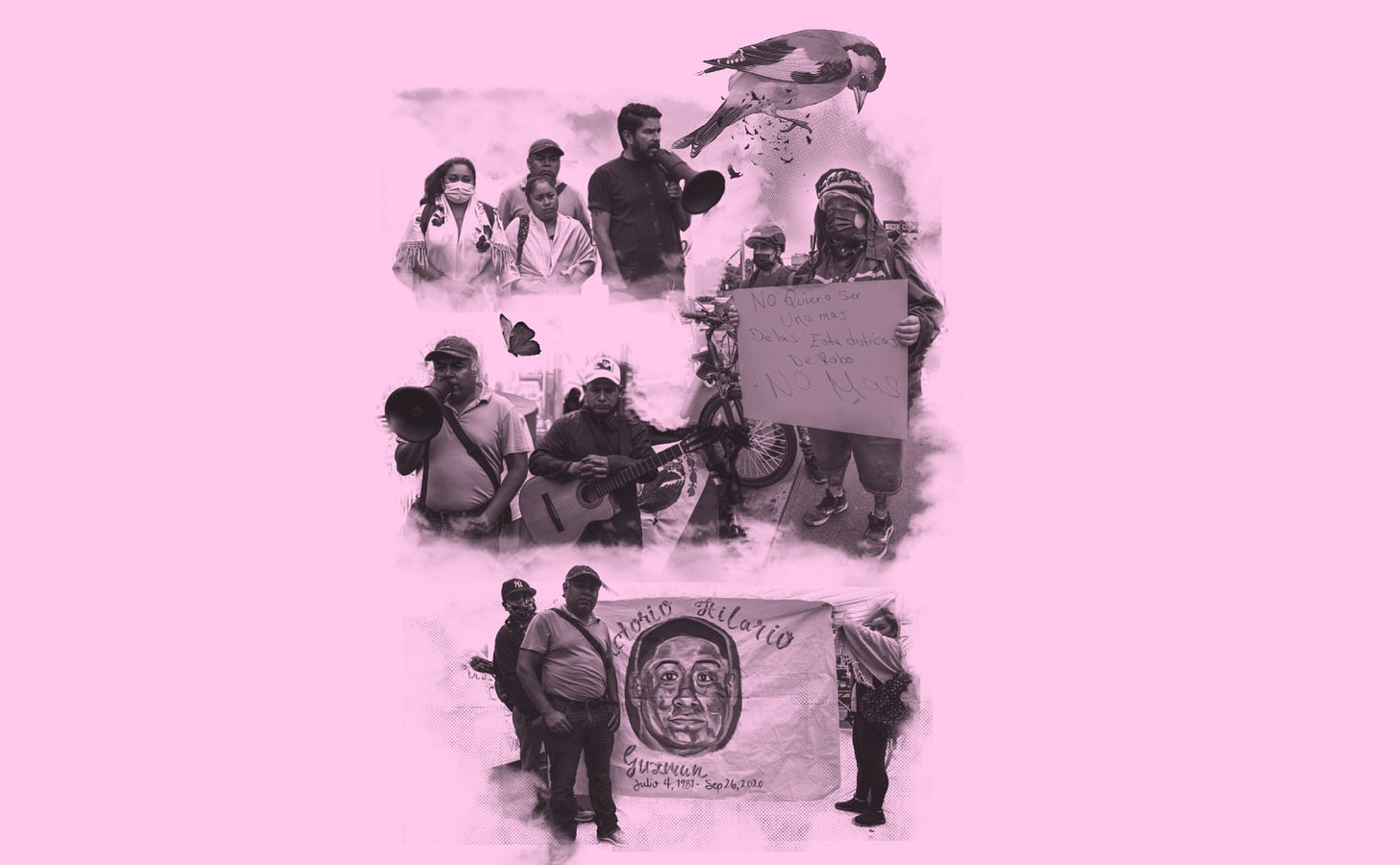This town is ruled by a ghost boss
«We want you to deliver our commodities, but stay out of sight», seems to be the subtext. The Upper West Side decided against turning an abandoned newsstand into a delivery workers' charging station.
Manhattan, NY — «We want you to continue serving us, and deliver our commodities, but stay out of our sight», seems to be the quiet implication.
On Tuesday night, residents decided against turning an abandoned newsstand at 72nd Street and Broadway into a new charging station for e-bike delivery personnel — many of them undocumented — who daily risk their lives in the busy NYC streets to deliver goods for Manhattan's affluent neighborhood. They operate under severe pressure, following the strict time constraints of the «ghost boss» inhabiting the app's algorithm, always watching.
The station under consideration could've offered a place for drivers to rest and charge their e-bikes. Such a space is not currently offered by the applications that commodify and profit off meal delivery1. Nevertheless, the Community Board 7 public meeting in Manhattan’s Upper West side attracted almost 70 attendees. In the end, the panel voted 27-8 against the proposal, with two abstentions.
According to the New York-based publication The Gothamist, various tenants of the wealthy area voiced concerns regarding the lithium batteries used to power e-bikes, which have caused multiple fires throughout the city. Regardless, this apprehension does not stop the consumption and commodification of the services provided by the aforementioned workers, and delivered by the «dangerous vehicles». Workers are mandated by the application to provide their own means of transportation, as well as the maintenance required to fulfill such hazardous tasks.
«I now say things about my fellow Upper West Siders that I used to reserve for Upper East Siders: they are despicable people. The newsstand, and tiny Le Pain Quotidien are empty […] [t]here is absolutely nothing "dangerous" about putting rechargeable vehicles next to a brick subway entrance. And my despicable neighbors, who have food delivered to their multimillion-dollar apartments all the time, voted it down», expressed B. MacWade in a comment.
❝The majority of the 65,000 app-based delivery workers in NYC — lauded «essential» during the early phases of the pandemic — is constituted by undocumented persons from West Africa, Bangladesh, Mexico, and Central America. They endure some of the city's most precarious conditions on a daily basis.❞
The Risks
The migrant-led independent publication, El Molino Informativo, reported the hardships faced by those forced to partake in this industry; particularly, the odyssey culminated in a tragic vigil held to remember the murder of Victorio, a NYC deliverista from the Me'phaa people of Guerrero cowardly run over on 2020. His brother recalled that when Victorio was killed on his way to fulfill an order, the person who committed the lethal act left him to his fate.
The majority of the 65,000 app-based delivery workers in NYC — lauded «essential» during the early phases of the pandemic — is constituted by undocumented persons from West Africa, Bangladesh, Mexico, and Central America. They endure some of the city's most precarious conditions on a daily basis.
In order to draw clients, these apps — backed by billions in venture capitalist and private equity funds — saturate social media with ads and coupons, promising daily deals under impossible timeframes.
Excluding tips, which represent an average 44% of their earnings — and a highly unstable form of income — the base net pay for app-based delivery workers in New York City amounts to $7.87, and the median net pay to $7.942. This sum is in contrast with New York City's minimum wage of $15 per hour.

This town is ruled by a ghost boss
As we noted, workers — as expected under the expansive degrees of immiseration characteristic of this mode of production — are made fully responsible for their own expenses, including their electronic vehicles required to sell their labor power. But besides the costly fees demanded to operate these bikes, delivery drivers often allude to how they feel they are «reporting to a ghost boss».
The app’s algorithmic management affects not only their pay, but also their ability to get work. The apps’ performance evaluation systems rely largely on workers’ acceptance of orders and consumer ratings. If workers reject too many orders or if they receive low feedback from consumers, they face lower ranking, fewer or less favorable time slots (such as lunch and dinnertime), and even deactivation of their accounts.
App-delivery workers are exposed to risk of severe injuries, which can prevent them from earning a wage for several weeks, without health insurance, while surviving in conditions of full immiseration and without access to public services or the ability to report transgressions, given their undocumented status.

Expensive Poverty
Forty-nine percent of workers interviewed3 reported having been in an accident or crash while conducting a delivery. Of these workers, 75 percent said they paid for the medical care with their own personal funds. Workers described being denied bathroom access during shifts, always paying out-of-pocket for on-the-job accidents, and frequent harassment by restaurant workers and customers.
Base pay is calculated by delivery time, distance, and the “desirability” of the order. DoorDash claims theirs ranges from $2-$10+ per delivery. These time and distance estimates may not always be accurate. If DoorDash believes an order should be quick, but there are delays in preparing the food at the restaurant, which the app did not anticipate, the worker is not compensated for the waiting time. The amount the apps pay per mile, minute, and other factors change from day to day. There is no fixed rate.
E-bikes, priced at $1,000-$2,200, are bought by workers through payment plans, many of them predatory. Frequently, these lending practices diminish a borrower's ability to repay debt due to their high-interest rates, hidden and excessive fees, undisclosed terms, and more. Additionally, delivery workers must purchase their insulated bags, unlimited data for their cellphone plans, and respective maintenance costs. All these expenses used to be provided by restaurants when delivery workers were directly hired by these establishments.
Despite having an e-bike, workers often opt to park or store overnight their vehicle, given that most couriers aim to work in either Manhattan, or the wealthier parts of Brooklyn and Queens, and must commute far from their homes. They take public transportation, usually the NYC subway, to reduce expenses.
As expected in this topsy-turvy world, unsurprisingly, the speediest arrival time to their destination is reserved for the commodities.
We take this opportunity to let our readers know that the fourth edition of El Molino Informativo will hit the stands shortly. El Molino Informativo is a free, alternative media outlet edited by migrants, independent journalists and activists to shatter suppressive discourses, and to encourage autonomous voices. It is available in Latin-American Castilian, as well as in several originary languages, and printed in Casa del Ahuizote, in Mexico City — a historic space located in the home of the printing house El Hijo del Ahuizote, the satirical weekly newspaper founded in opposition to the dictatorship of Porfirio Díaz, and established by the archives of the Flores Magón brothers. The printing house routinely issues content regarding the libertarian anarchist tradition of the Mexican nation-state.
El Molino Informativo is distributed in the communities of Michoacán, Guerrero, Oaxaca, Puebla, Tlaxcala, Ciudad de México, Morelos, Baja California, Chihuahua, Jalisco, and in the New York City metropolitan area, primarily in the Bronx. If you are interested in circulating these autonomous struggles in your area, please contact comrade and taller ahuehuete’s very own Heriberto Paredes.
«To the capitalist who has others working for him, buying and selling becomes a primary function. Since he appropriates the product of many on a large social scale, he must sell it on the same scale and then reconvert it from money into elements of production. Now as before neither the time of purchase nor of sale creates any value. The function of merchant’s capital gives rise to an illusion…» Marx, Karl. Capital, Vol. II.
Our source is "Essential but Unprotected: App-based Food Couriers in New York City", the title of a report published by Cornell ILR's Worker Institute and the collective Los Deliveristas. The report documents the working conditions of app-based delivery personnel hired by online marketplaces.
For the Essential but Unprotected: App-based Food Couriers in New York City research project.








